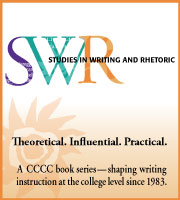Characterization of Institution
Small Private Engineering School
Characterization of Department
Department of Liberal Arts. B.A. granted in Liberal Arts
How would Sherry Richer’s case turn out in your department? At your university/college?
History says it’s a no-go. And I don’t think the Chair/Committee would be out of line here. The tenure expectations seemed pretty clear to Richer (at least based on the narrative), so the fact that she hasn’t met the requirements would be grounds for non-tenure. The key issue would be, it seems, how Richer was being rewarded for her administrative work. How will that count in her tenure case? As with most administrative/service posts, it’s common for such work to get lost. I think that WPA discussions and strategies might be useful here.
The problem turns (at least in this aspect of the argument) on whether or not her institution allows people to be tenured based primarily on service. If that’s not feasible—and it doesn’t sound like it is—then it doesn’t seem she has a case. And I don’t think she should be surprised.
I also would have to say, I think denying tenure would be appropriate in this case. Her position is at a “major research university” (rather than a teaching university); she would seem obligated to doing research. Of course, in one sense she is—but she’s failing to (a) construct her work as research (in the eyes of the university) and (b) circulate her research findings in ways that make the available, long-term, to the community. Conference presentations are a start, but they’re only a start. And although CCCC and C&W are somewhat selective, their acceptance rate is relatively high (compared to peer-edited journals, especially research-oriented journals). And she’s failed to translate her work into what would seem to be the most natural (and probably acceptable) category in terms of tenure: a scholarship of teaching. Why isn’t she publishing journal articles on her mentoring and teaching? Those would seem to be obvious ways to make her work visible in an institutionally valued way.
What are the Department Chair’s responsibilities toward Richer? Which did she/he fulfill? Fail?
The chair succeeded by creating the position in the first place—the structure of the post seems well suited to the work that Richer wants to do. But they have failed in making Richer successful—there’s no mention anywhere of reviews prior to the one the case ends on. The chair had a responsibility much earlier to alert Richer that she needed to adjust her strategies in order to be successful for tenure. (Although the chair’s failure to do so may provide Richer with a loophole—if she wasn’t making adequate progress, she should have been informed of this much earlier.)
For her part, Richer also seems to have failed to self-assess her progress, at least in a proactive way. From the narrative, she senses that she’s not doing well but fails to do anything substantive to reposition herself. For example, the major tenure issue appears to be a lack of publication—that is, she thinks she needs a book, but she doesn’t appear to be planning on writing a book. It’s not so much that the journal article was in an online journal, but that all she has at this point is a single chapter and an article in a small journal. The focus on all of her service work (assessment, running an online conference, etc.) are only going to allow her to martyr herself to The Cause.
This has become, I think, something of a trend in composition (and in computers and writing): the insistence that service replace scholarship in academia. For example, running an online conference is, I agree, both a great deal of work and an invaluable service to the community. Teaching in a computer-based classroom is a lot of work and a lot of fun (sometimes). Knowing HTML is a valuable job skill. Being able to install and configure software is extremely helpful. But these service and teaching activities do not replace research and scholarship. Ideally, the different aspects of the job (teaching, service, scholarship) need to exist in some sort of healthy balance. But that balance needs to be negotiated with an institution, not assumed.
One thing to consider is the effect of allowing non-scholarly work to be substituted for scholarship in academic tenure. Although in this case we may find ourselves leaning toward rewarding Richer for doing socially valued work, once we decouple scholarship from its research components, that opens the door to a host of other activities that may be used to substitute for scholarship. For example, corporate-sponsored research in sciences and engineering–which are already crowding out traditional research– will become the norm.
My own institution is currently considering the possibility that textbooks be counted as scholarship. I am arguing against this because I see the two entities as very different. (I should add that I’ve authored two textbooks, so this move would actually *help* me out a great deal in terms of promotion—but I think it would have a negative effect on the discipline and academia in general.)
What are the Personnel Committee’s responsibilities toward Richer? Which did they fulfill? Fail?
They either need (a) earlier reviews, or (b) more clearly articulated requirements for administrative/service positions.
What are the responsibilities of the Dean? Which did she/he fulfill? Fail?
It will depend on the climate at the institution. There’s not much info about this, but if the university community seems like it’s pushing hard at teaching and technology as institutional goals, there’s a chance the Dean could negotiate some sort of agreement that part of Richer’s service work substitutes in some way for scholarship. (As I said above, I’m not sure I agree with that—but if that substitution is formally spelled out as part of the terms of her appointment as director of the center, then I don’t see it as necessarily obviating scholarship in general.
What are Richer’s responsibilities? Which did she/he fulfill? Fail?
She has lived up to the teaching and service aspects of the job (which may be enough to make the university fight hard to keep her); she’s failed to adequately assess her situation and then fix what seem to be pretty clear problems.
What went wrong? What went right?
Not enough communication on the part of anyone here.












